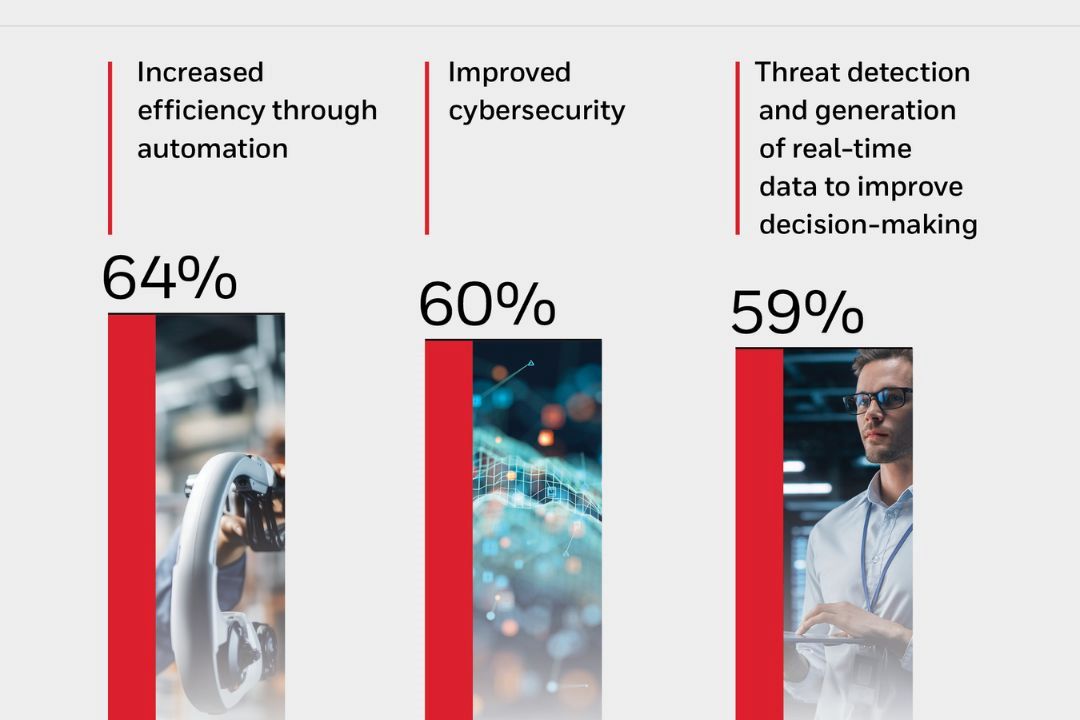Honeywell (Nasdaq: HON) has released its latest research on the state of Artificial Intelligence (AI) in the industrial sector. According to the “Industrial AI Insights” global study, only 17% of AI decision-makers have fully implemented their initial AI plans. However, more than 90% are discovering unexpected new use cases during their AI implementation phases, whether in prototyping, launch, or scaling stages.
The study shows a high level of enthusiasm for AI among industry leaders, with 94% planning to expand their AI utilization. Kevin Dehoff, Honeywell’s Chief Strategy Officer, emphasized that AI is at a pivotal moment, driven by generative AI and advanced analytics, which promise exponential growth in revenue and employee satisfaction.
In India, 29% of companies have fully launched their AI strategies, and 27% view data as their most important asset. The research highlights improved efficiency, productivity, and data availability for decision-making as the most promising AI use cases, cited by 79% of respondents. Additionally, 88% of Indian enterprises are prepared to pay more to attract skilled AI engineers.
The study reveals that 64% of AI leaders see efficiency and productivity gains as major benefits, 60% recognize improved cybersecurity and threat detection, and 59% report better decision-making due to real-time data. AI is also transforming the workforce by enabling quicker upskilling and reskilling, addressing the skills shortage, and enhancing job satisfaction.
Lucian Boldea, President and CEO of Honeywell Industrial Automation, noted that AI can significantly upgrade the skills of less experienced technicians, making them experts capable of operating complex equipment, thus reducing human error and improving plant operations.
Despite the enthusiasm, some challenges remain. Thirty-seven percent of respondents believe their C-suite does not fully understand AI, and 48% continually need to justify or request resources for AI implementation. Billal Hammoud, President and CEO of Honeywell Building Automation, stated that AI is transforming operations by improving safety, operational, and sustainability outcomes.
The study, conducted by Wakefield Research, surveyed 1,600 AI leaders from 12 global markets, including the US, Brazil, Canada, China, France, Germany, India, Japan, Mexico, the UK, Saudi Arabia, and the UAE. Respondents were from companies with at least 1,000 employees currently using AI to automate processes and tasks.
Honeywell is an integrated operating company serving diverse industries globally. It focuses on three megatrends: automation, the future of aviation, and energy transition, supported by the Honeywell Accelerator operating system and Honeywell Forge IoT platform. Honeywell’s segments include Aerospace Technologies, Industrial Automation, Building Automation, and Energy and Sustainability Solutions, all aimed at creating a smarter, safer, and more sustainable world.







